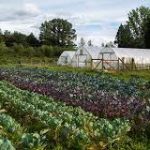For centuries, rural farming has been synonymous with manual labor involving cattle, plows, and sweat. However, the landscape is rapidly changing with the introduction of agricultural robots and advanced machinery, marking a profound shift in farming practices.
At Diantian Farm in rural Shanghai, this transformation is evident as robots, guided by engineers like Li Wei, have replaced traditional farming methods. With precision, Li Wei maneuvers his agricultural robot using a controller, one of many engineers at the Diantian rural cooperative dedicated to revolutionizing rice cultivation, the farm’s primary crop.
Over the past seven years, these engineers have spearheaded research and development efforts, resulting in the creation of over 60 types of agricultural robots capable of various tasks from planting to harvesting. These robots utilize crawler feet for navigating diverse terrains and rely on advanced artificial intelligence systems to plan their actions.
The process for farmers is now streamlined—through a WeChat mini-program on their mobile phones, they can activate the robots, eliminating the need for exhaustive manual labor. “I grew up in the countryside, and I know firsthand how exhausting farm work can be,” remarks Wang Jinyue, head of the Diantian agricultural cooperative.
Today, a fleet of agricultural robots lines the fields, working efficiently, accurately, and tirelessly. Wang emphasizes that technologies such as 5G, image recognition, and big data empower these robots to swiftly assess crop distances and execute rapid harvesting within seconds.
Weeding robots, equipped with precise sensors, can differentiate between crops and weeds, ensuring targeted removal. Each weeding robot operates for eight hours on just a one-hour charge.
The agricultural robots at Diantian Farm are integrated with China’s BeiDou Navigation Satellite System, utilized in over 100,000 sets of agricultural machinery automated driving systems nationwide.
This modernization of agriculture is not unique to Diantian Farm. In Hanzhong, Shaanxi province, intelligent equipment has optimized vegetable cultivation, making it more cost-effective and efficient. An automated vegetable farm spanning 13 hectares achieves unmanned production with minimal labor.
China’s commitment to rural revitalization is underscored by its “No 1 central document” for 2024, prioritizing agricultural science and technology support and research on core germplasm technologies. The Ministry of Agriculture and Rural Affairs reports significant progress, with agricultural technological advancements contributing over 62 percent and crop cultivation mechanization exceeding 73 percent in 2022.





